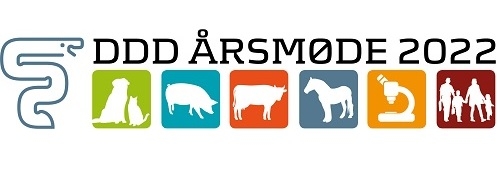
-
Alison Moores
BVSc(Hons) CertSAS DipECVS FRCVS, RCVS Specialist in Small Animal Surgery (Soft Tissue), EBVS® European Specialist in Small Animal Surgery, Anderson Moores Veterinary SpecialistsAlison graduated from the University of Bristol in 1996. She initially spent four years in first opinion practice. She completed a Junior Clinical Training Scholar (Internship) in 2000 and a three year Senior Clinical Training Scholarship (Residency) in Small Animal Surgery in 2004, both at the Royal Veterinary College (RVC). She was a Lecturer in Surgery at the RVC until 2007. She then worked in private referral practice in Surrey for 6 months before joining Anderson Moores Veterinary Specialists in 2008. She works as a specialist soft tissue surgeon, offering secondary and tertiary referrals in all disciplines of soft tissue surgery. Alison became a Diplomate of the European College of Veterinary Surgeons in 2005 and is an RCVS Recognised Specialist in Small Animal Surgery. As well as providing clinical services, Alison is actively involved in veterinary postgraduate certificate teaching and she is an examiner for several of the certificate qualifications available in the UK. She is the surgery program coordinator for the BSAVA Postgraduate Certificate in Small Animal Surgery and is a module leader for the RVC Certificate in Advanced Veterinary Practice. She is External Examiner at Edinburgh University and previously examiner for the RCVS Certificate in Small Animal Surgery examination. Alison lectures for a number of CPD providers in the UK, including BSAVA congress, BSAVA PGCertSAS, CPD Solutions and the Webinar Vet. She has lectured regularly in the Republic of Ireland, Denmark, Sweden and Finland, as well as in Hong Kong. She is a past Associate Editor of the Journal of Small Animal Practice and a past member of the BSAVA Education committee. She has also been Secretary and then President of the Association of Veterinary Soft Tissue Surgeons. Alison co-edited the second edition of the BSAVA Manual of Canine and Feline Wound Management and Reconstruction and has provided book chapters for the BSAVA Manual of Canine and Feline Wound Management and Reconstruction, the BSAVA Manual of Abdominal Surgery, Complications in Small Animal Surgery, Feline General and Soft Tissue Surgery, and the Textbook of Veterinary Surgical Nursing. She has published multiple clinical research papers. In 2019 Alison was made a Fellow of the Royal College of Veterinary Surgeons for meritorious contributions to clinical practice. Fellowship is the highest status of membership of the College and is awarded for outstanding contributions to the veterinary profession.
Speaker til følgende sessioner-
09:50 - 10:30 Imaging approach to urinary tract disorders. Foredragssponsor LABOKLIN11:00 - 11:40 Treatment of urinary incontinence. Foredragssponsor LABOKLIN15:35 - 16:15 The blocked cat. Foredragssponsor LABOKLIN09:00 - 09:40 The urolith blocked dog15:00 - 15:40 Feline ureteral obstruction15:50 - 16:30 Case examples - mainly lower urinary tract trauma, neoplasia
-
